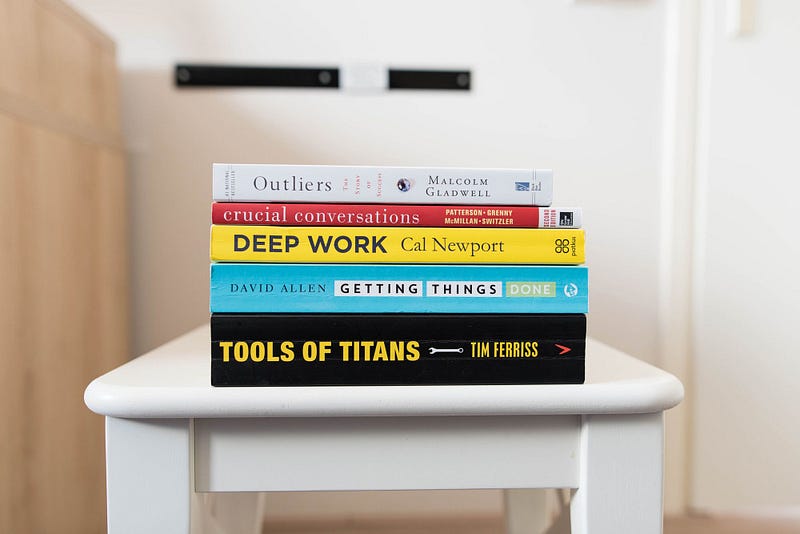I remember like it was yesterday… my first post-graduation job interview.
As I sat across from the hiring manager, my palms sweating and my posture nearly too upright, I fielded the usual interview questions:
Tell us about your experience.
What are your greatest strengths?
Where do you see yourself in five years?
And then, a seemingly simple one:
How are you at multitasking?
My answer was nearly automatic. “I’m a great multitasker,” I said, adding that I could easily juggle several tasks at once.
I answered truthfully because, at the time, I thought I excelled at switching from task to task. Plus, that seemed to be a desirable trait — a sign of efficiency and productivity.
Today, my answer would be different. I’m not a strong multi-tasker.
And I think that’s a good thing because now, I practice the opposite of multitasking: deep work. I pursue undistracted focus and try to complete one (and only one) task at a time.
When my company, Jotform, is recruiting new hires, we also look for candidates who excel in deep work. Here’s why.
Maybe there was a time when multitasking was a sought-after skill.
With a handful of today’s notifications vying for our attention, it’s no surprise to hear that working without distractions boosts productivity.
When you shift your attention from the task at hand to a secondary activity — like checking email or social media notifications — it’s difficult to return to the original task. Researchers refer to this phenomenon as “attention residue,” and it happens because that secondary activity lingers in your mind even when you return to the original task.
For example, you stop writing a report to quickly check your email, but your mind dwells on an unanswered message. With splintered focus, your report suffers.
And the effects aren’t insignificant. Shifting between tasks can consume as much as 40% of our productive time.
Multitasking is damaging our ability to focus — and our brains.
In fact, the damage begins before we even set foot in the professional world. Colleges are now facing a decidedly modern challenge, with student bodies that can’t sustain their attention.
At Columbia University, for example, every student has to pass a core curriculum, which is about 200–300 pages of weekly reading for first- and second-year students.
In recent years, however, professors have noticed that students are struggling to complete their assignments — prompting academics to reconsider their teaching methods.
Multitaskers don’t perform as well on tests or in high-pressure situations, either.
Working with a group of 100 students, Stanford researchers found that multitaskers made more mistakes, remembered fewer details, and actually took longer to complete timed tasks than those who didn’t consider themselves to be frequent multitaskers.
As the negative effects of digital distraction pile up, we’re also seeing more advocates of deep work, which requires deliberate effort to tune out distractions.
What exactly is ‘deep work?’
According to author and Georgetown professor Cal Newport, deep work refers to:
“Professional activities performed in a state of distraction-free concentration that push your cognitive capabilities to their limit. These efforts create new value, improve your skill, and are hard to replicate.”
In other words, deep work requires discipline to block out distractions, and it leads to real learning and valuable results.
But think about it… how often do you focus solely on one task? We’re talking no meetings, no inbox checking, and no quick dips into your social media platform(s) of choice. Zero distractions.
Take emails. Millennials reportedly spend 6.4 hours a day checking their email. People age 35 and older aren’t much better; they spend roughly five hours a day on email.
Imagine the hours we could reclaim by limiting ourselves to checking email 2–3 times a day, at the most.
How to go deep
The ability to do deep work is an increasingly prized skill.
According to deep work expert Cal Newport, a capitalist economy rewards things that are rare and valuable. Social media use is decidedly not rare or valuable, but the ability to sustain deep focus and produce high-quality work will set you apart from the crowd.
But how can we develop skills to do deep work?
Here are a few tips to have helped me to get on the road to deep work and higher productivity:
Block out time for deep work
It’s true, deep work requires discipline to block out distractions. And mapping your day into time blocks, including time for deep, uninterrupted work can be pretty helpful.
Schedule the most attention-rich tasks — the ones that require sustained focus — for when your mind is fresh. Most importantly, limit those time blocks to 90 minutes, after which you become cognitively fatigued.
Everyone has different peak hours. It’s up to you to make the most of your day and to learn when you work and feel your best. Brian Tracy calls this your prime time:
“Your internal prime time is the time of day, according to your body clock, when you are the most alert and productive.”
Take me for example. Personally, I feel the best first thing in the morning. That’s when I write morning pages about a question or issue I want to tackle. Later, I transform any insights I uncovered into an agenda, email or presentation for my team.
If you don’t know your prime time, author Yulia Yaganova suggests a three-week experiment where you rate your energy, focus, and motivation at the end of every hour, using a scale from one to 10.
Cal Newport also recommends holding yourself accountable to a deep work schedule. Create a visual scorecard of the time you spend engaged in focused work, like a calendar with tick marks.
Seeing the hours and days add up can be motivating, and encourage you not to break the chain.
Power down and disconnect
When not doing deep work, it’s important to power down and disconnect instead of looking for the next dopamine rush that comes with scrolling through Instagram.
I was inspired by a recent article about Hinge CEO Justin McLeod, who deleted the email app from his smartphone and sometimes goes two weeks without checking on his team.
McLeod said this low-tech approach makes him a better leader because he has time and space to simply think. His dating app, Hinge, has raised over $20 million in funding. The takeaway: we don’t have to be hyper-connected connected in order to grow a successful company.
Busy founders have started implementing “Think Weeks” into their annual schedules — week long periods they spend reflecting, reading, thinking and living outside the all-encapsulating world that is running a business.
For many years while running Microsoft, Gates would retreat into week-long Think Weeks twice a year — not vacations, but actual periods of time dedicated to doing nothing.
You don’t necessarily have to ban family and friends to retreat into a Think Week, though. Take me as an example.
Every year, I take at least a full week off from my company and head back to my hometown to help my parents with the olive harvest.
All thoughts of startup growth or conversion rates slip away when you’re picking olives. It’s meditative and calming.
I know that olive picking won’t land me at the top of TechCrunch, but it’s a personal measure of success. And somehow, some of my best ideas come to me during this period and I’m ready for my next deep work sessions.
Practice makes perfect: meditate
Practicing meditation can also hone your ability to focus. If meditation feels intimidating, apps like Headspace or Calm can help you get started, and they even have specific modules designed to boost your concentration.
Ultimately, meditation is a form of brain training. When the mind wanders, you’ll learn how to gently bring it back to the present moment.
According to Olympic champion canoeist and regular meditator, Etienne Stott, “if you have practiced seeing your thoughts and not getting caught up in them, you will know it is possible to stay connected to an activity and move through distractions — internal or external.”
For better, faster, happier work: go deep
There are many reasons to make deep work a regular habit. It can help you to produce better results in less time and reduce the stress associated with busy workdays.
As a bonus, deep work puts us in a “flow” state, which psychologist Mihály Csíkszentmihályi’s claim is when humans are happiest.
When we’re absorbed in a single task, we don’t have enough leftover attention to dwell on inane mental chatter, worry about problems beyond our control, or stress about an endless to-do-list.
Despite a world of distractions, we can learn how to focus and hone this increasingly valuable skill.
With regular practice, a little planning, and some deliberate disconnection, we can all become better deep workers.
















Send Comment: